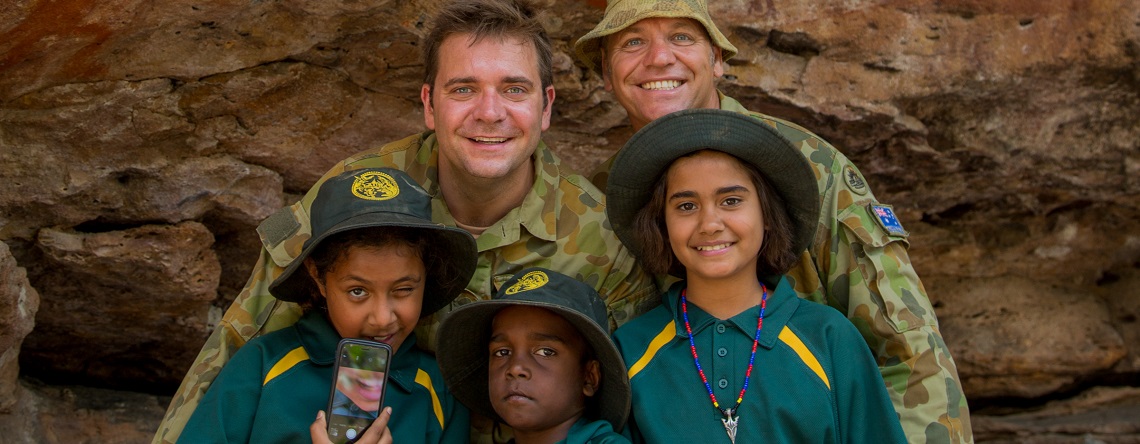
The Army Aboriginal Community Assistance Programme (AACAP) has been delivering infrastructure, job skills training and health care to remote Indigenous communities for over 20 years.
AACAP is about listening to the needs of Indigenous residents and working together to make a real difference at a local level in Indigenous communities. The programme delivers on-the-ground assistance to improve essential services like water, power and sewerage, community infrastructure, health and job skills training.
There is a focus on boosting existing community medical, dental and vet services as well as providing new skills through courses on construction, building maintenance, vehicle and engine maintenance, welding, concreting and cooking.
The broad scope of AACAP projects has delivered significant gains against a number of the Closing the Gap targets: employment; economic development; healthy lives; safe, healthy communities; education and infancy and early childhood development.
AACAP is funded by the Australian Government’s Indigenous Advancement Strategy and delivered in partnership with the Australian Army, which contributes personnel and equipment to plan, design, manage and complete the works. In addition to Army’s contribution and commitment, the Commonwealth has provided over $100 million since 1997, making AACAP a significant long-term commitment to Closing the Gap.
AACAP has provided benefits to 42 remote Indigenous communities. In recent years, AACAP projects have been undertaken in Laura, Queensland, Titjikala, Canteen Creek and Wutunugurra in the Northern Territory, Fregon in South Australia, and Lombadina and Djarindjin in Western Australia.
In 2016, residents of Laura welcomed a 170 strong contingent of Army personnel including a team of engineers, tradesmen and plant operators who delivered a new wastewater disposal system, a multi-purpose facility, a roof over the basketball court, 1000m of footpaths and a community picnic ground.
Indigenous capacity-building organisation, Many Rivers, provided business and administration training specifically tailored to the needs of the local Aboriginal corporation, Ang-Gnarra. Training was focused on employment opportunities and healthy lifestyles.
The National Rugby League ran accredited referee and coaching courses and NAIDOC activities including bringing NRL ambassador and Indigenous player Matt Bowen, to Laura - a great thrill for the kids.
Laura residents also received health and dental treatments throughout the project, with a dental team setting up at the town’s Quinkan Cultural Centre.
Australian Army dentist Captain Paul Mutzelburg said the work was rewarding.
“Certainly, with treatment, a goal is changing people’s quality of life and it’s a privilege to go out and do that,” Paul said.
At the completion of the Laura project, Federal Member for Leichardt, Warren Entsch, thanked the Army personnel for their contribution and efforts in the community.
“It’s these sorts of actions that really build long-term relationships between those involved in the military and the local community. It was a job very well done,” Mr Entsch said.
The Government will continue to support AACAP into its 21st year, with the Army deploying to the remote Indigenous New South Wales community of Toomelah in 2017. Residents will benefit from a new multipurpose facility, waste management improvements, community roads upgrade as well as refurbishment of the church and the sports oval.
And in 2018, in partnership with the South Australian Government, the Army will go to the South Australian community of Yalata.
Army personnel participating in AACAP provide a great example of what a career in the Australian Defence Force represents and provide some really positive role models for young boys and girls in the communities they work with.
